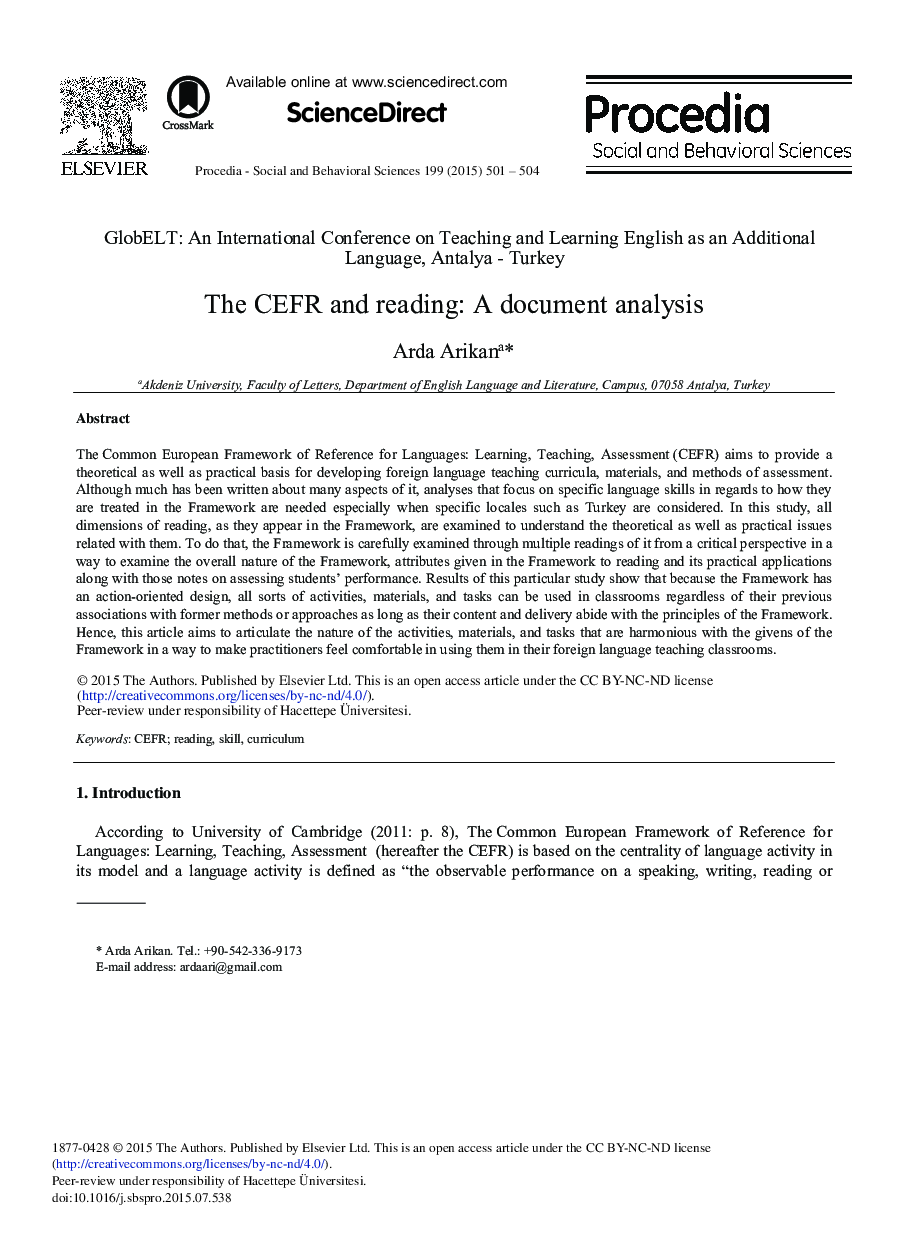| Article ID | Journal | Published Year | Pages | File Type |
|---|---|---|---|---|
| 1109817 | Procedia - Social and Behavioral Sciences | 2015 | 4 Pages |
The Common European Framework of Reference for Languages: Learning, Teaching, Assessment (CEFR) aims to provide a theoretical as well as practical basis for developing foreign language teaching curricula, materials, and methods of assessment. Although much has been written about many aspects of it, analyses that focus on specific language skills in regards to how they are treated in the Framework are needed especially when specific locales such as Turkey are considered. In this study, all dimensions of reading, as they appear in the Framework, are examined to understand the theoretical as well as practical issues related with them. To do that, the Framework is carefully examined through multiple readings of it from a critical perspective in a way to examine the overall nature of the Framework, attributes given in the Framework to reading and its practical applications along with those notes on assessing students’ performance. Results of this particular study show that because the Framework has an action-oriented design, all sorts of activities, materials, and tasks can be used in classrooms regardless of their previous associations with former methods or approaches as long as their content and delivery abide with the principles of the Framework. Hence, this article aims to articulate the nature of the activities, materials, and tasks that are harmonious with the givens of the Framework in a way to make practitioners feel comfortable in using them in their foreign language teaching classrooms.
